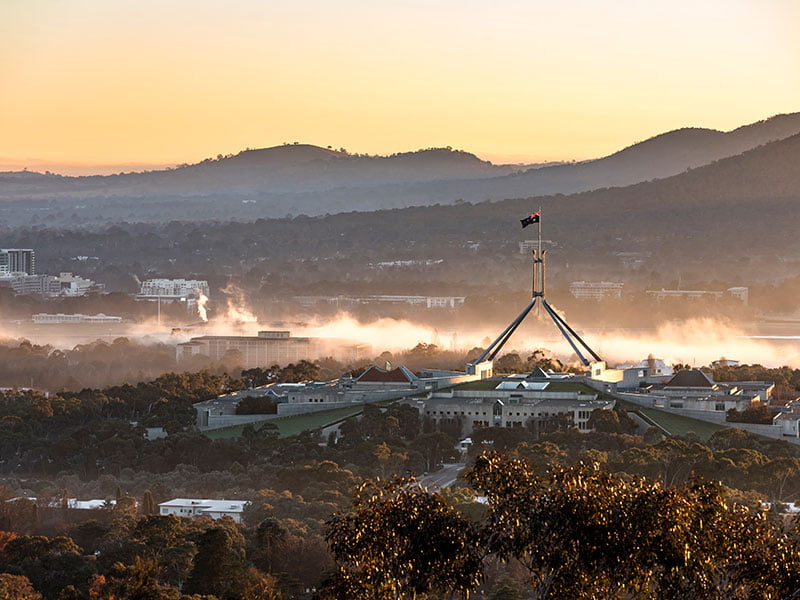The Australian National University has admitted the academic freedom of one of its staff may have been jeopardised after she was removed from a panel discussion on COVIDSafe which also featured a representative from Boston Consulting Group, a firm that was paid nearly $1 million by the government to work on the app.
ANU lecturer Dr Priya Dev, who holds a PhD in mathematics from the university, had been set to moderate a discussion on the COVIDSafe app at the start of July, featuring ANU alumnus and Boston Consulting Group project leader Chris Davern and Clayton Utz special counsel Mathew Baldwin.
But after an opinion piece Dr Dev had written for the Nine newspapers in May was circulated to the panellists, she was removed from the panel by the university.
Dr Dev’s op-ed, which did not mention Boston Consulting Group, argued that COVIDSafe should be redesigned to incorporate the Google and Apple framework for contact tracing.

InnovationAus understands that BCG, a large American consulting firm that is a prolific Australian government contractor, pressured ANU to take Dr Dev off the panel based on her queries about the effectiveness of the app and the decisions made in its design.
The ANU has said that Mr Davern was appearing as an alumnus of the university and not as a representative of his employer BCG, and the global consultancy was not involved in the decision.
BCG was paid a total of $885,500 for its work on COVIDSafe, which is still yet to identify a unique close contact in Victoria, the state worst hit by the COVID-19 pandemic.
Most of the work was done with the Digital Transformation Agency (DTA), which led the development of COVIDSafe. DTA chief executive Randall Brugeaud is a former BCG executive, while ex-DTA chief strategy officer Anthony Vlasic left the DTA to join BCG in February this year.
The consultancy firm was involved in the early stages of the development of the contact tracing app, with the decision to opt for a centralised model over the decentralised one put forward by Google and Apple leading to controversy and debate.
The university decided this week to not release the recording of the panel discussion, which took place nearly two months ago, publicly or even internally after one or both of the panellists declined to give permission for it to be made public.
In a statement to InnovationAus, ANU acknowledged that Dr Dev’s academic freedom may have been impacted by these decisions and is “taking steps to rectify this”.
A spokesperson said that the university had made the final decision to replace Dr Dev on the panel but confirmed that “discussions were held” with Mr Davern.
It also said that due to its privacy policy requiring full permission of all panellists and attendees before it is released publicly, the recording of the event won’t be seeing the light of day.
This is despite the panel discussion being publicised as a free and public event. The panellists were aware that it was being recorded for public release.
“Academic freedom is one of our founding principles. We understand the decision to replace Dr Dev as host of this event could have impacted Dr Dev’s academic freedom and the university is taking steps to rectify this,” the spokesperson told InnovationAus.
The ANU has told Dr Dev that she could coordinate her own panel on COVIDSafe to more accurately discuss the app and its well-publicised flaws, but the academic had been waiting to hear a recording of the original panel to inform her own.
According to BCG, the firm was involved in the “relatively early stage in the development cycle” of COVIDSafe, particularly in terms of supporting the coordination between the relevant agencies and departments and helping to train state and territory health teams.
BCG’s digital ventures arm worked on the product development efforts, including the creation of user journey flows and designs and working with other contractors, including AWS and Shine Solutions.
The ANU has repeatedly publicly stated that it is committed to academic freedom, with the ANU Academic Board issuing a statement on the matter in mid-2018 which “explicitly” recognised the “centrality of academic freedom to the activities of ANU”.
“Important, the statement is an affirmation of our values and a commitment to continue as the leading institution upholding Academic Freedom in Australia, and internationally,” it said.
ANU vice-chancellor Brian Schmidt has also regularly touted the importance of academic freedom.
“For us to continue to stand among the great universities of the world, we must protect academic freedom within the University to enable the pursuit of knowledge and the exploration of challenging and new ideas that are fundamental to our purpose,” Mr Schmidt said in 2018.
Do you know more? Contact James Riley via Email.

